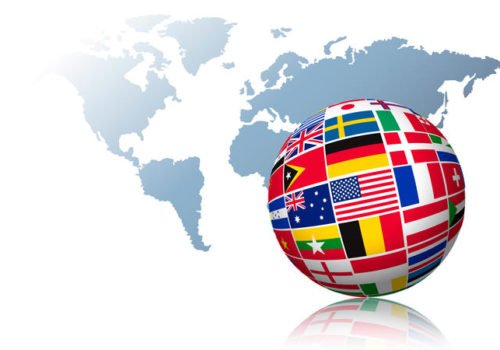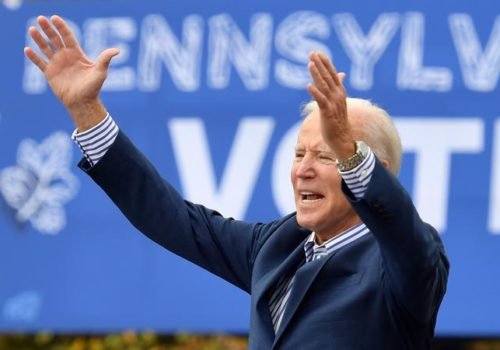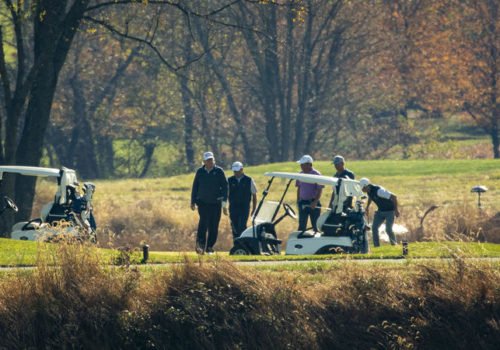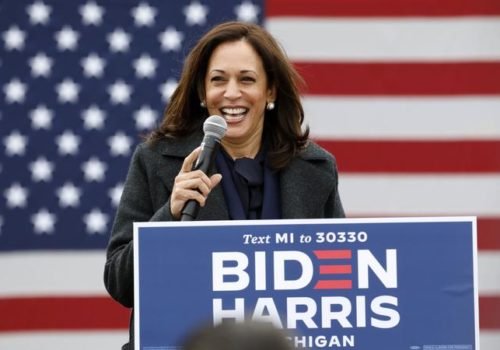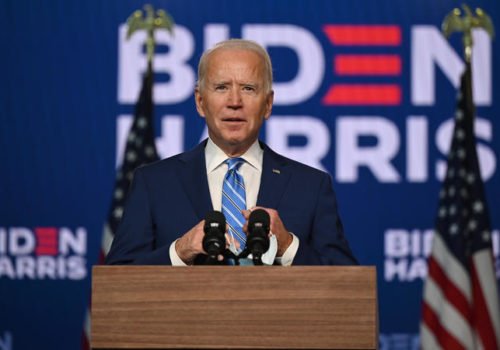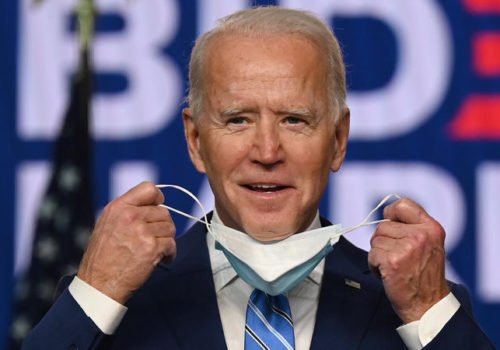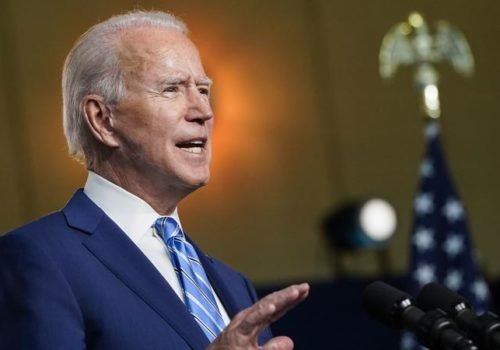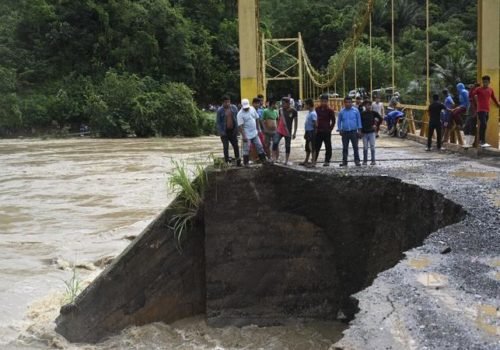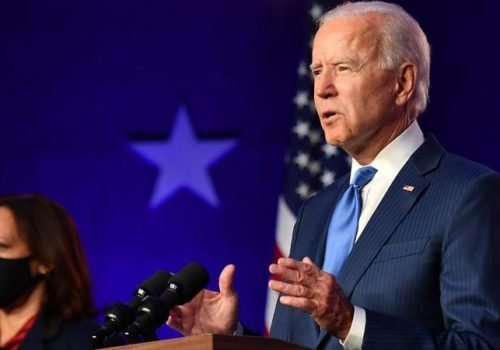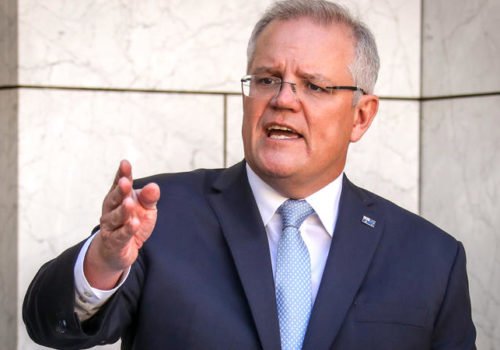US election result: What Biden's victory means for the rest of the world
Analysis - After days of uncertainty, Joe Biden has won the US presidential election, the projections of major media outlets show.
Photo: 123RF
During Donald Trump's four years in office, America's relationship with the world changed profoundly.
BBC reporters across the globe, from Beijing to Berlin, explain how news of Biden's victory is being received and what it could mean for key US relationships.
China
Joe Biden's victory offers another challenge for the Chinese system, writes John Sudworth in Beijing.
You might think Beijing would be glad to see the back of Donald Trump. As China-basher-in-chief he hit them with a trade war, levied a raft of punitive sanctions and badgered and blamed them for the coronavirus pandemic.
But some analysts have suggested that the Chinese leadership may now be feeling secretly disappointed. Not because they have any lasting fondness for Trump, but because another four years of him in the White House held out the tantalising prospect of a bigger prize. Divisive at home, isolationist abroad - Trump seemed to Beijing the very embodiment of the long-anticipated and hoped for decline in US power.
It was a message rammed home by the country's Communist Party-controlled TV news bulletins. They focused not on the election itself - but on the protests, rancour, and rising US virus infection rates alongside it.
China might, of course, try to find advantage in Joe Biden's willingness to seek co-operation on big issues like climate change. But he's also promised to work to repair America's alliances, which may prove to be far more effective in constraining China's superpower ambitions than Trump's go-it-alone approach.
And a Biden victory offers another challenge for a Chinese system devoid of democratic control. Far from a decline in American values, the transition of power itself is proof that those values endure.
India
Kamala Harris's roots are a source of pride in India but Narendra Modi may get a more frigid reception from Biden than his predecessor, Rajini Vaidyanathan writes from Delhi.
India has long been an important partner to the US - and the overall direction of travel is unlikely to change under a Biden presidency.
South Asia's most populous nation will remain a key ally in America's Indo-Pacific strategy to curtail the rise of China, and in fighting global terrorism.
That said, the personal chemistry between Biden and Indian Prime Minister Narendra Modi could be trickier to navigate. Trump has held back from criticising Modi's controversial domestic policies - which many say discriminate against the country's Muslims.
Biden has been far more outspoken. His campaign website called for the restoration of rights for everyone in Kashmir, and criticised the National Register of Citizens (NRC) and the Citizenship Amendment Act (CAA) - two laws which sparked mass protests.
Incoming Vice-President Kamala Harris - half-Indian herself - has also spoken out against some of the Hindu nationalist government's policies. But her Indian roots will spark mass celebration in much of the country. That the daughter of an Indian woman who was born and raised in the city of Chennai will soon be second-in-command at the White House is a moment of immense national pride.
The Koreas
North Korea once described Biden as a "rabid dog" - but now Kim Jong-un will be making careful calculations before trying to provoke the new US president, writes Laura Bicker in Seoul.
It's likely Chairman Kim would have preferred another four years of Donald Trump.
The leaders' unprecedented meeting and follow-ups made for incredible photo-ops for the history books but very little of substance was signed. Neither side got what they wanted out of these talks: North Korea has continued to build up its nuclear arsenal and the US has continued to enforce strict sanctions.
In contrast, Joe Biden has demanded North Korea show that it is willing to abandon its nuclear weapons programme before he holds any meetings with Kim Jong-un. Many analysts believe that unless Biden's team initiates talks with Pyongyang very early on, the days of "fire and fury" may return.
Kim might want to get Washington's attention with a return to long-range missile tests, but he won't want to increase tensions to the point that the already impoverished state would be hit with even more sanctions.
South Korea has already warned the North not to go down a provocative path. Seoul may have struggled to deal with Donald Trump at times - but President Moon is keen to put an end to the 70-year war on the Korean peninsula and he praised Trump for having the "courage" to meet with Kim. The South will closely watch for any sign that Biden is willing to do the same.
Donald Trump (right) meets with North Korea's leader Kim Jong Un at the start of their US-North Korea summit in June 2018. Photo: AFP or licensors
UK
The US and UK's "special relationship" may face a downgrade with Joe Biden at the helm, writes political correspondent Jessica Parker in London.
They won't be seen as natural allies: Joe Biden, the seasoned Democrat, and Boris Johnson, the bombastic Brexiteer.
In looking at how their future relationship might work, it's worth considering the past. Specifically that seminal year, 2016, when Donald Trump won the White House and the UK voted to leave the EU. Both Joe Biden and his boss at the time, Barack Obama, made no secret they preferred another outcome on Brexit.
The UK government's recent manoeuvres in relation to Brexit have not gone down well with key Democrats and the Irish lobby, including the US president-elect. Biden said he would not allow peace in Northern Ireland to become a "casualty of Brexit" if elected - stating that any future US-UK trade deal would be contingent upon respecting the Good Friday Agreement.
Remember how Donald Trump once called Boris Johnson "Britain Trump"? Well, Biden seemingly agreed, once reportedly describing the UK prime minister as Trump's "physical and emotional clone". So it's possible Joe Biden may initially be more eager to talk to Brussels, Berlin or Paris than love-bomb London. The "special relationship" could, feasibly, face a downgrade.
However, the two men may yet find some common ground. The two countries they lead, after all, have long-standing and deep-running diplomatic ties - not least in the areas of security and intelligence.
Russia
A more predictable administration may be the "silver lining" for Russia of Biden's win, writes Steven Rosenberg in Moscow.
The Kremlin has an acute sense of hearing. So when Joe Biden recently named Russia as "the biggest threat" to America, they heard that loud and clear in Moscow.
The Kremlin also has a long memory. In 2011 Vice-President Biden reportedly said that if he were Putin, he wouldn't run again for president: it would be bad for the country and for himself. President Putin won't have forgotten that.
Biden and Putin are not a match made in geo-political heaven. Moscow fears the Biden presidency will mean more pressure and more sanctions from Washington. With a Democrat in the White House, could it be payback time for Russia's alleged intervention in the 2016 US election?
One Russian newspaper recently claimed that under Trump, US-Russian relations had plunged "to the seabed". But it likened Biden to a "dredger" who was going to "dig even deeper". Little wonder Moscow has that sinking feeling.
But for the Kremlin there could be a silver lining. Russian commentators predict a Biden administration will, at least, be more predictable than the Trump team. That might make it easier to reach agreement on pressing issues, like New Start - the crucial US-Russian nuclear arms reduction treaty due to expire next February.
Moscow will want to move on from the Trump era and try to build a working relationship with the new White House. There's no guarantee of success.
Germany
Germans hope for a return to smooth-sailing with their key ally once Donald Trump has departed, writes Damien McGuinness in Berlin.
Germany will breathe a sigh of relief at this result.
Only 10 percent of Germans trust President Trump on foreign policy, according to the Pew Research Centre. He is more unpopular in Germany than in any other country surveyed. Even Russia's Putin and China's Xi Jinping poll better in Germany.
President Trump is accused of undermining free trade and dismantling the multinational institutions which Germany relies on economically. His spats with China have rattled German exporters and he has a notoriously poor relationship with Chancellor Angela Merkel - it's hard to imagine two leaders more different in ethos and personality. German politicians and voters have been shocked by his abrasive style, his unconventional approach to facts and his frequent attacks on Germany's car industry.
Despite this, the US is Germany's biggest trading partner and the transatlantic relationship is critical for European security. So the Trump presidency has been a rocky ride. German ministers have criticised President Trump's calls for vote-counting to stop and his unsubstantiated claims of electoral fraud. Defence Minister Annegret Kramp-Karrenbauer called the situation "explosive".
There is an awareness here that major policy differences between Washington and Berlin will not go away under a Biden presidency. But Berlin is looking forward to working with a president who values multilateral co-operation.
The transatlantic relationship is critical for European security. Photo: 123RF
Iran
A Biden victory could bring Tehran back to the negotiating table, writes BBC Persian Service correspondent Kasra Naji.
In the weeks before the US election, President Trump said rather optimistically that once re-elected the first telephone call he received would be from Iran's leaders asking to negotiate.
That phone call to Trump - if he had won - was never going to happen. Negotiating with the Trump administration would have been impossible for Iran; it would be too humiliating.
Under President Trump, US sanctions and a policy of maximum pressure have left Iran reeling on the edge of economic collapse. Trump withdrew from the nuclear deal. Worse still, he ordered the killing of General Qasem Soleimani, a close friend of the Supreme Leader Ayatollah Ali Khamenei. Taking revenge for his killing remains near the top of the agenda for hardliners.
The election of Joe Biden makes entering negotiations with a US administration far easier for Iran. President-Elect Biden does not have the same baggage. He has said he wants to use diplomacy and return to the nuclear deal with Iran.
But Iran's hardliners will not come to the table easily. As Americans went to the polls on 3 November, the Supreme Leader claimed the election would have "no effect" on Tehran's policies. "Iran followed a sensible and calculated policy which cannot be affected by changes of personalities in Washington," he said.
Millions of Iranians thought differently as they quietly watched the US election unfold on their illegal satellite TV screens, convinced their futures depended on the results and hoping a Biden victory would see sanctions eased.
Israel
There are expectations of a reset of much of Donald Trump's Middle East policy, writes Tom Bateman in Jerusalem.
President Trump supercharged the two poles of the Middle East. He sought to reward and consolidate America's traditional regional allies, while isolating its adversaries in Tehran.
President-elect Biden will try to rewire US Middle East policy back to the way he left it as Vice-President under Barack Obama: Easing Trump's "maximum pressure" campaign on Iran and aiming to re-join the 2015 nuclear deal abandoned by the White House two years ago.
That prospect horrifies Israel and Gulf countries like Saudi Arabia and the UAE. One Israeli minister said in response to Biden's likely win that the policy would end with "a violent Israeli-Iranian confrontation, because we will be forced to act".
The result also dramatically shifts the US approach to the Israeli-Palestinian conflict. Trump's plan was seen to heavily favour Israel and give it the chance to annex parts of the occupied West Bank. That was shelved in favour of historic deals to establish ties between Israel and several Arab states.
This drive to regional "normalisation" is likely to continue under Biden, but he may try to slow controversial US weapons sales to the Gulf and would likely seek more Israeli concessions. Annexation now seems definitively off the table and Biden will also object to further Israeli settlement building.
But there won't be the "complete U-turn" that one Palestinian official demanded this week. The rhetoric will return to the traditional understanding of a "two-state solution", but the chances of making much progress in the moribund Israeli-Palestinian peace process look slim.
Egypt
Hopes are high among activists that the Biden administration will increase pressure on Egypt over human rights, writes Sally Nabil in Cairo.
Egypt's military-backed President Abdul Fattah al-Sisi enjoyed a very good relationship with Donald Trump. It would have been better for him to keep a friend in the White House, but now he will have to start a fresh chapter with Joe Biden.
Critics of President Sisi accused the Trump administration of turning a blind eye to his alleged human rights abuses. Egypt receives $1.3bn in US military aid per year. In 2017, a small tranche of this aid was suspended over human rights concerns but was released the following year.
Joe Biden winning the White House is seen as good news by many human rights groups here. Activists hope the new US administration will put pressure on the Egyptian government to change its heavy-handed policies toward the opposition - with tens of thousands of political prisoners reportedly in prison. The Egyptian authorities have always denied jailing any prisoners of conscience, challenging the credibility of critical human rights reports.
"US-Egyptian relations have always been strategic, regardless of who sits in the Oval Office," says Ahmed Sayyed Ahmed, a political analyst. "Partnership will continue, but the Democrats' rhetoric about human rights might not be well received by some Egyptians, who see this as meddling in their country's affairs."
Cuba
After harsh sanctions, Joe Biden's victory brings relief, writes the BBC's Cuba Correspondent Will Grant.
A Biden presidency is exactly what most Cubans have been hoping for. Indeed, the majority of people on the island would happily see almost anyone in the White House other than Donald Trump. His sanctions have brought real hardship and Cubans are exhausted after four years of unrelenting hostility.
Joe Biden, on the other hand, revives memories of the recent highpoint in Cuban-US relations under President Obama. In fact, the former vice-president is said to have been instrumental in making the two years of detente possible.
The communist-run government in Havana will no doubt continue to say all US presidents are essentially cut from the same cloth. But among the people queuing for basic goods and struggling to make ends meet, the overriding feeling will nonetheless be one of great relief.
The only drawback from Cubans point of view? Biden is now well aware of just how positively President Trump's harsh treatment of Cuba played to voters in the key election battleground of Florida. They fear he may be far less inclined to ease some of Trump's measures than he otherwise might have been.
Canada
Justin Trudeau will see an ally in his new neighbour, writes Jessica Murphy in Toronto.
The Canadian prime minister pledged to deepen ties with the US no matter who won the presidential election - but it's likely relief was felt in Ottawa when it became clear Democrat Joe Biden had clinched victory.
Canada's relationship with the US has been rocky under President Trump, though not without its accomplishments. They include the successful renegotiation of the North American Free Trade Agreement, along with Mexico.
But Justin Trudeau has made clear he felt a political kinship with former President Barack Obama - who endorsed him during the recent Canadian federal election. That feeling of warmth extends to the man who served as Obama's vice-president - Joe Biden.
In Biden, Trudeau's Liberal Party will find an ally on issues like climate change and multilateralism. But that doesn't mean there aren't opportunities for friction with his administration. President Trump authorised the construction of the Alberta-to-Texas Keystone XL oil pipeline, a project seen as key to Canada's struggling energy sector - but President-elect Biden opposes the project.
And Joe Biden's "Buy American" economic plan to revive US industry after the coronavirus pandemic will be a concern given Canada's deep dependence on trade with the US.
- BBC

